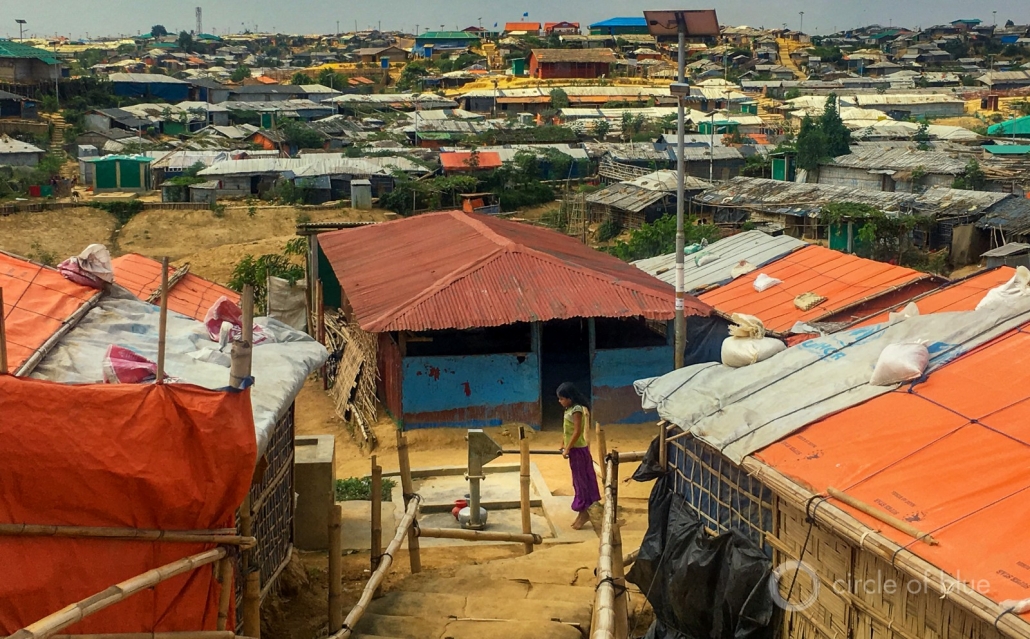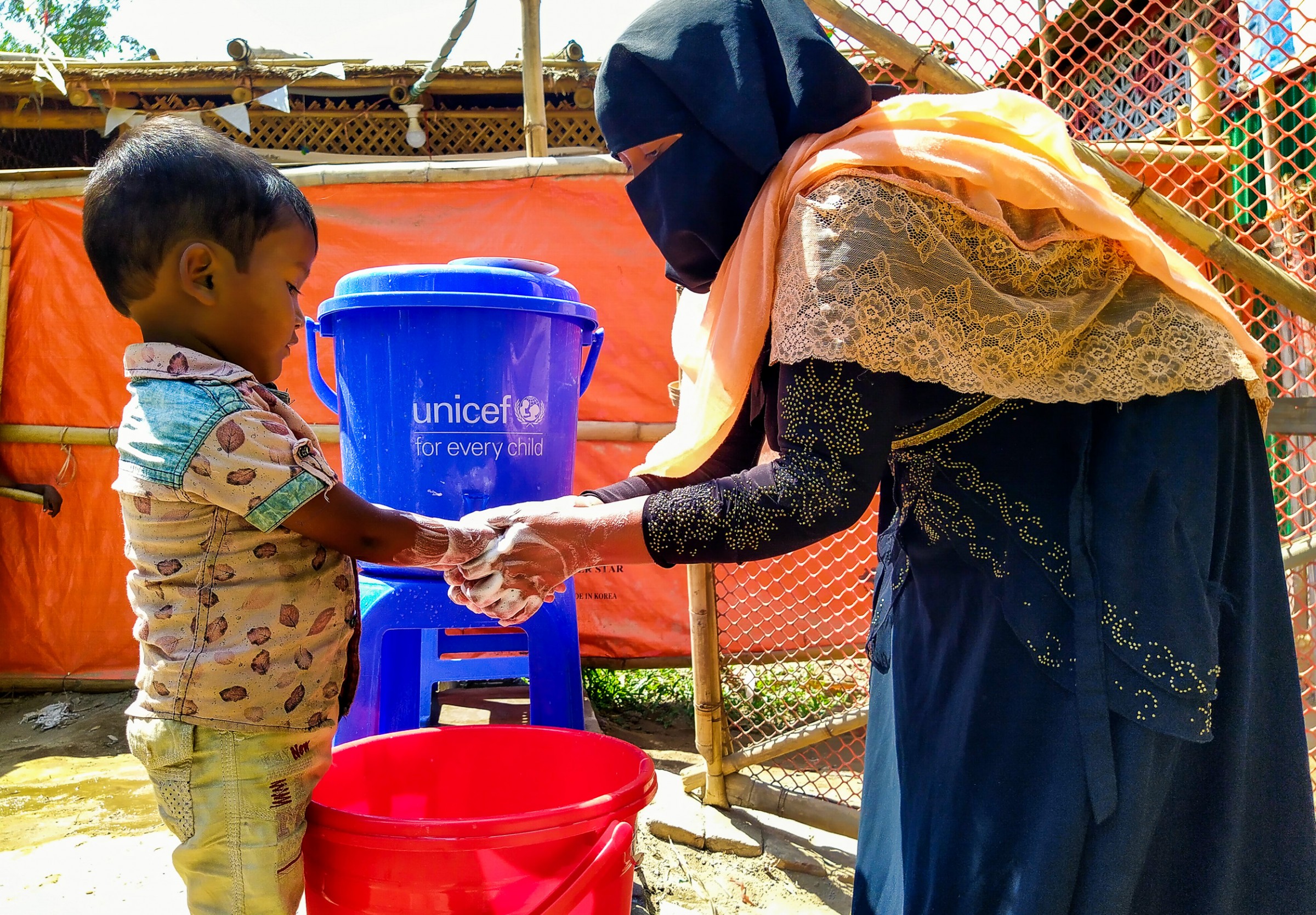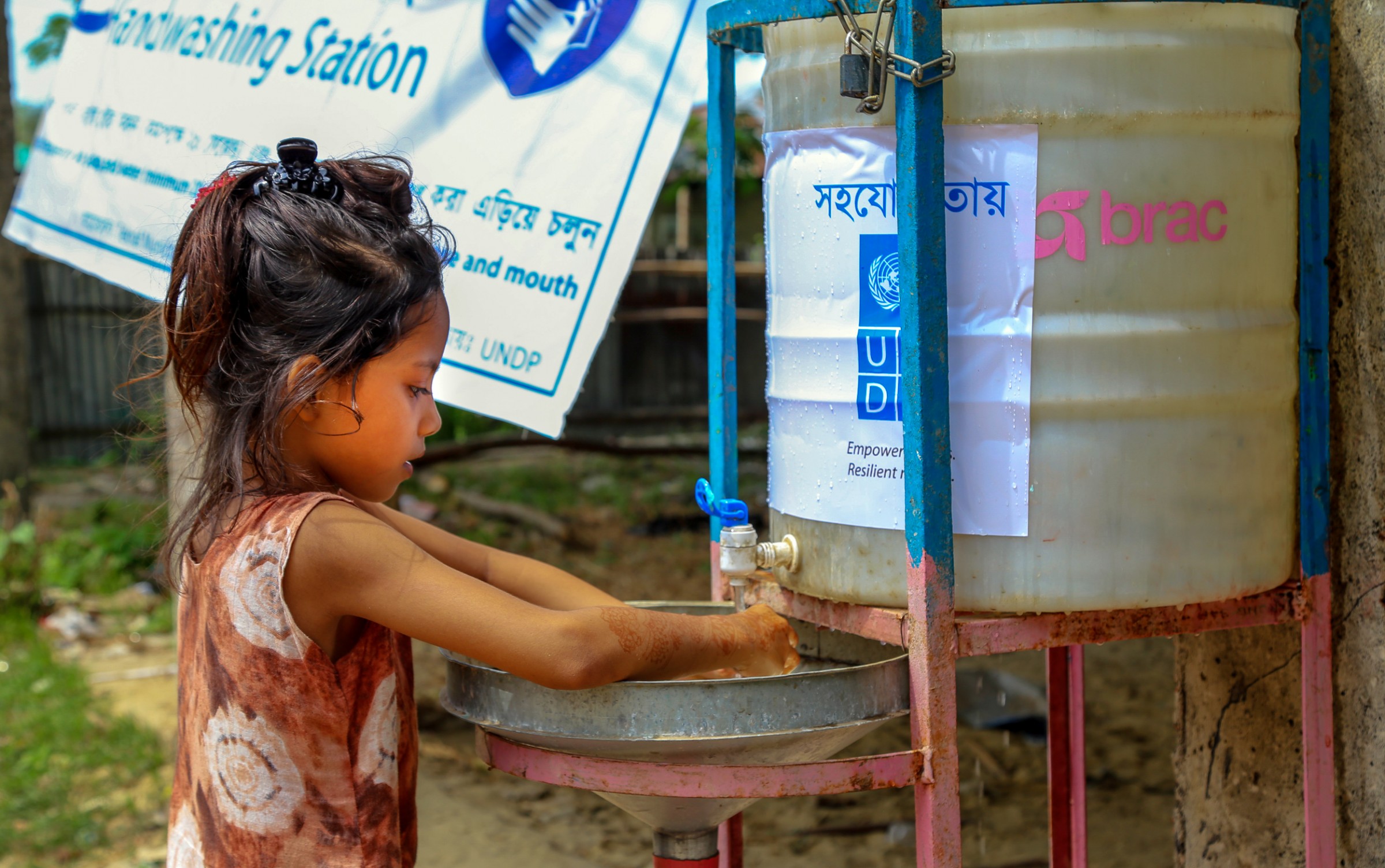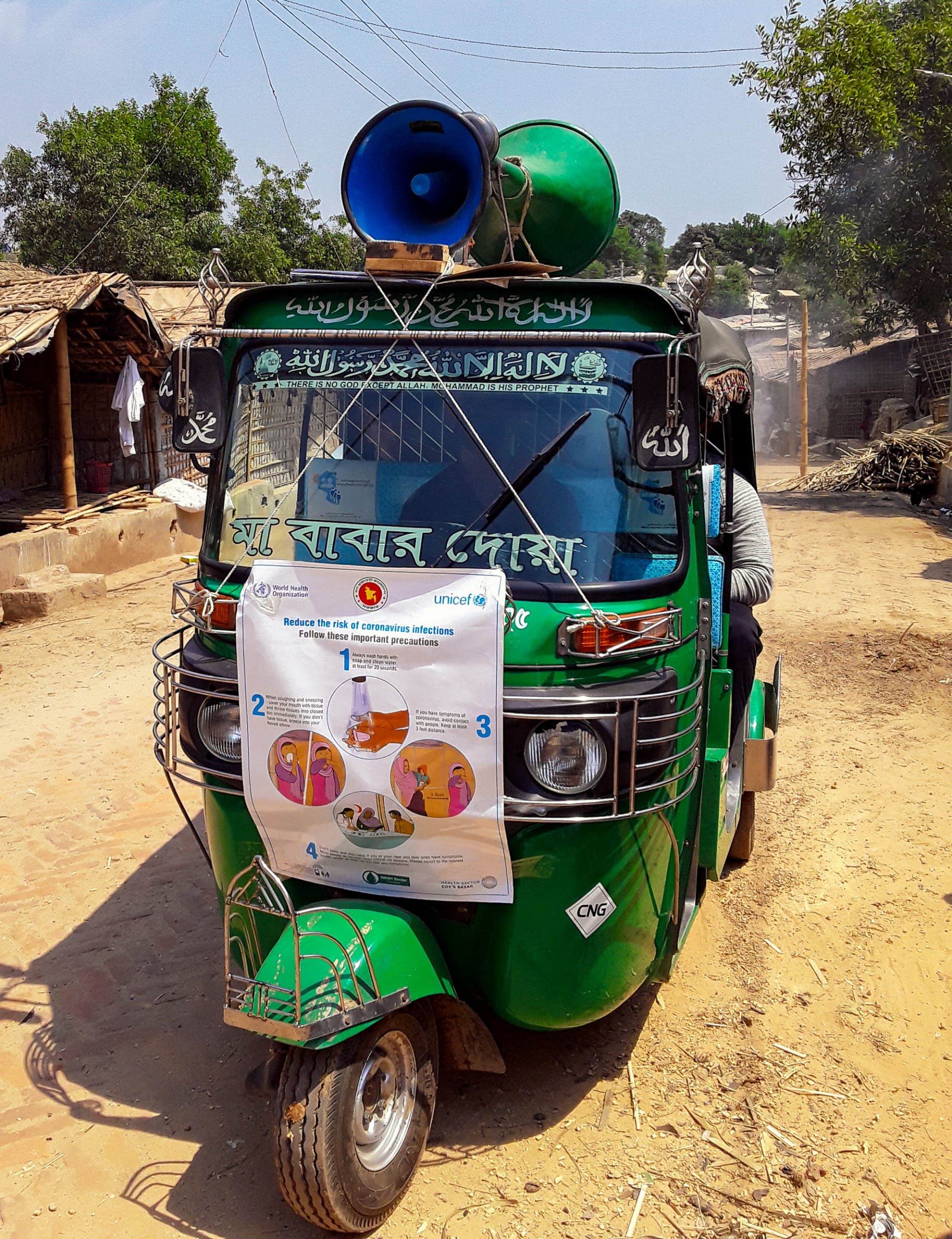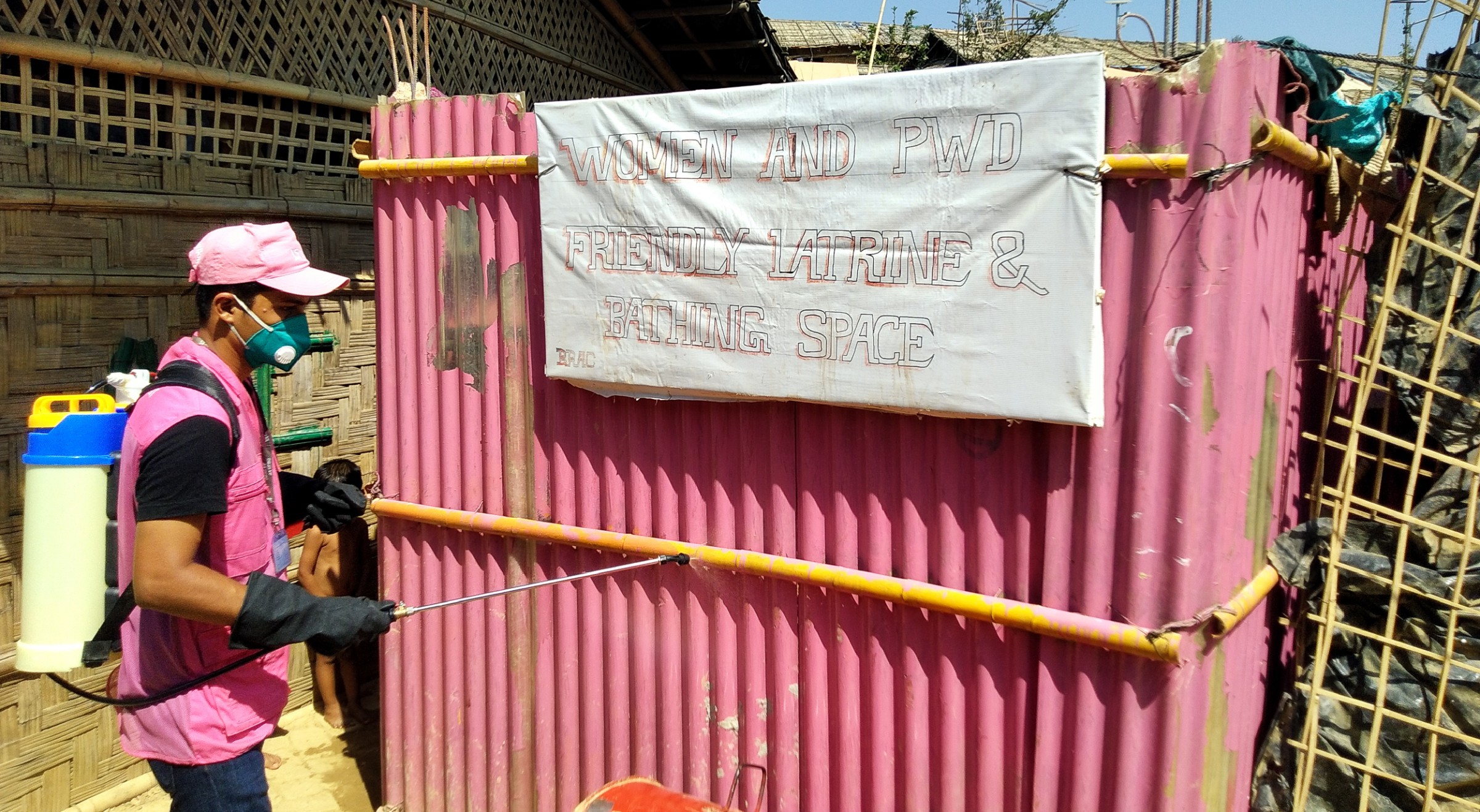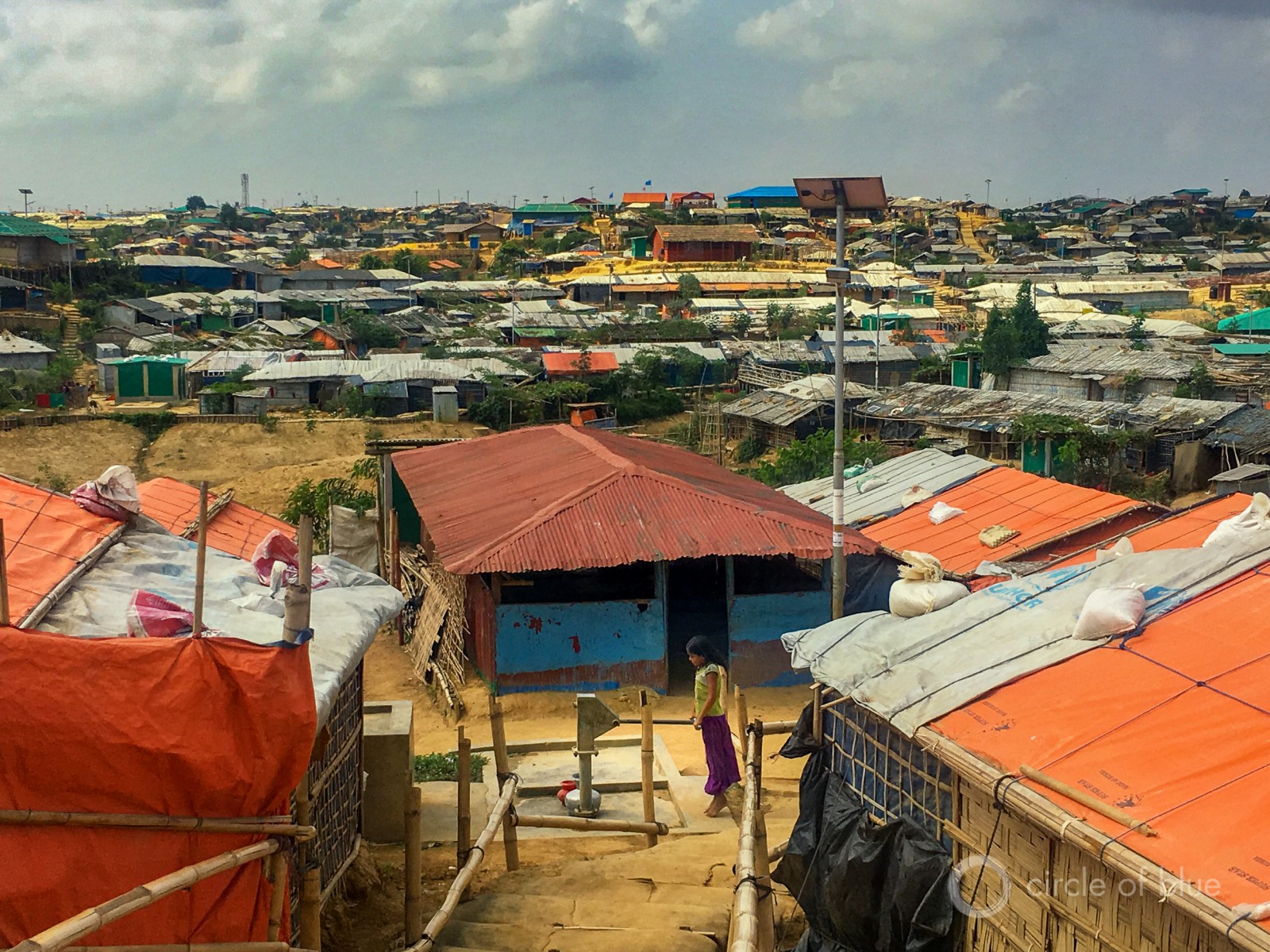One threat for Rohingya Muslims collides with another.
By Jane Johnston, Circle of Blue
Around one million Rohingya, an ethnic minority group that faced persecution in Myanmar, fled the country in the last three years, ending up across the border in Cox’s Bazar district of Bangladesh, where they live in refugee camps and in surrounding communities.
The new coronavirus was slow to arrive in the camps, but as Covid-19 cases gradually tick upward in the makeshift settlements, which are some of the world’s most densely populated, authorities are working diligently to prevent an overwhelming wave of infections.
In early April, the Bangladeshi government issued an order restricting aid agency operations within Cox’s Bazar’s 33 refugee camps. The order, obtained by Circle of Blue, is intended to “minimize risk within the camp setting,” while still providing essential services such as supplying hygiene kits and continuing water and sanitation, or WASH, activities like safe water supply and maintenance of handwashing stations and toilets.
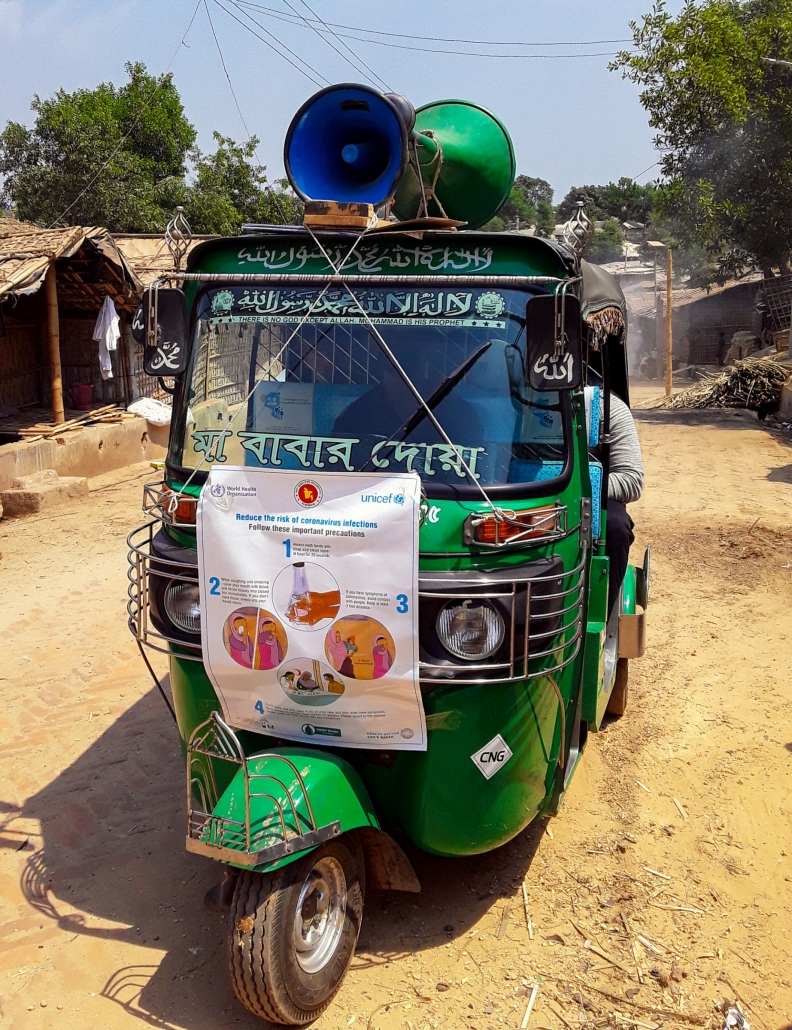
Staff in a Cox’s Bazar refugee camp run an information campaign to spread awareness about Covid-19 to camp residents. Photo © Inter Sector Coordination Group.
As of June 14, 40 Rohingya refugees had contracted the virus inside the camp, and two have died, according to the international group that coordinates the humanitarian response in Bangladesh.
In an email to Circle of Blue, Julien Graveleau, Cox’s Bazar’s WASH sector coordinator, attributed the late arrival of the virus inside the camp to an emergency response that was launched in March.
“This is quite an achievement,” he said, adding that it gave them more time to prepare for an outbreak.
Water access, sanitation, and hygiene efforts have become even more critical since handwashing is a frontline defense against the virus.
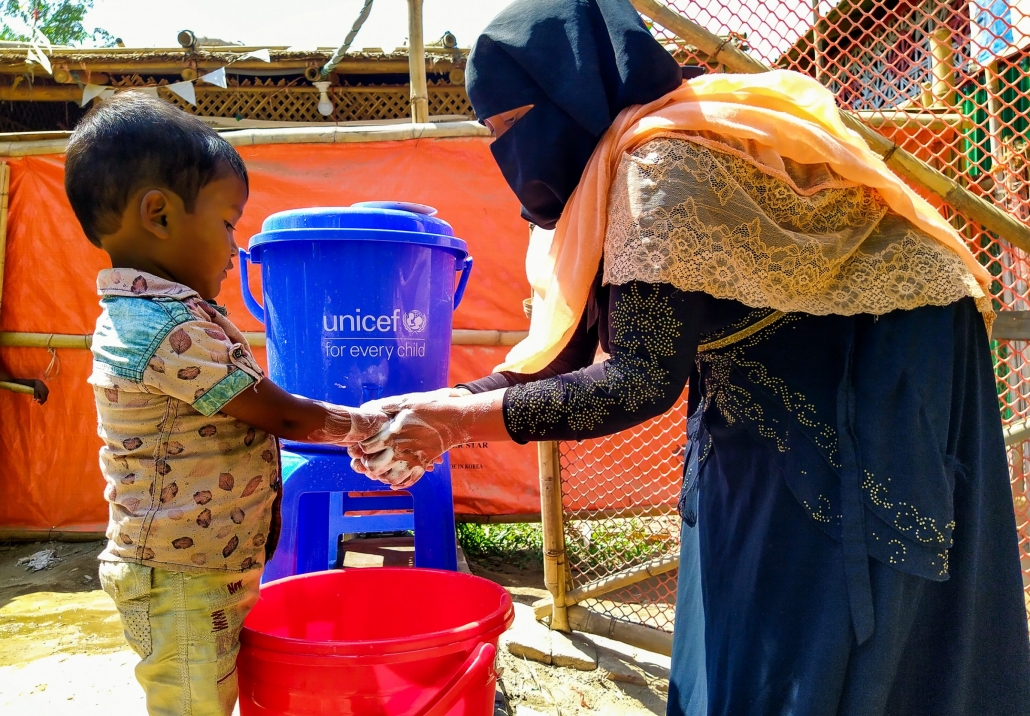
A caregiver washes a child’s hands in Camp 25 before entering a nutrition center. Photo © World Vision International.
Graveleau added that WASH partners “are constantly adapting the response as [they] are learning more every day about the disease.”
With the government’s restrictions, this means that they need to lean on partnerships with people living within the camps. They are training more Rohingya residents to maintain water supplies as less outside aid is allowed to enter. They are also distributing hygiene kits and enforcing social distancing as much as possible in a camp setting where people are packed more tightly than in Manhattan.
The aid agency CARE International has been managing relief efforts since 2017 for three camps that host about 100,000 people, according to Ram Das, the agency’s Deputy Country Director in Bangladesh. A pandemic won’t change that, he said.
“Our aim,” he said of their WASH programs, is to provide “adequate and sustainable” access to water inside the camps.
Although reports of “unusable” toilets due to lack of maintenance have come out of some camps, Das said a team of mainly Rohingya volunteers living inside the camps works around the clock to ensure handwashing stations and toilets are properly maintained.
“Wherever we are working,” he said, “we make sure that none of these complaints come from the community.”
When there are issues, Das said they are typically resolved within 24 hours of the complaint.
Graveleau echoed this response. “Some local disturbances of soap distribution or water supply may not be representative of the overall situation,” he said.
“There are some challenges,” he said of their sanitation and waste management efforts, but said hygiene measures have been “scaled up.”
Additional obstacles are on the horizon. June is the start of the region’s monsoon season. Das said heavy rains could complicate the daily collection and disposal of solid waste within the camps, and increase the need to disinfect hygiene facilities.
Monsoons can be devastating to Bangladesh’s refugee population. Along with massive floods and landslides, the heavy rains are known to cause waterborne diseases. In April, the UN Refugee Agency warned that without proper preparations, this year could be especially catastrophic.
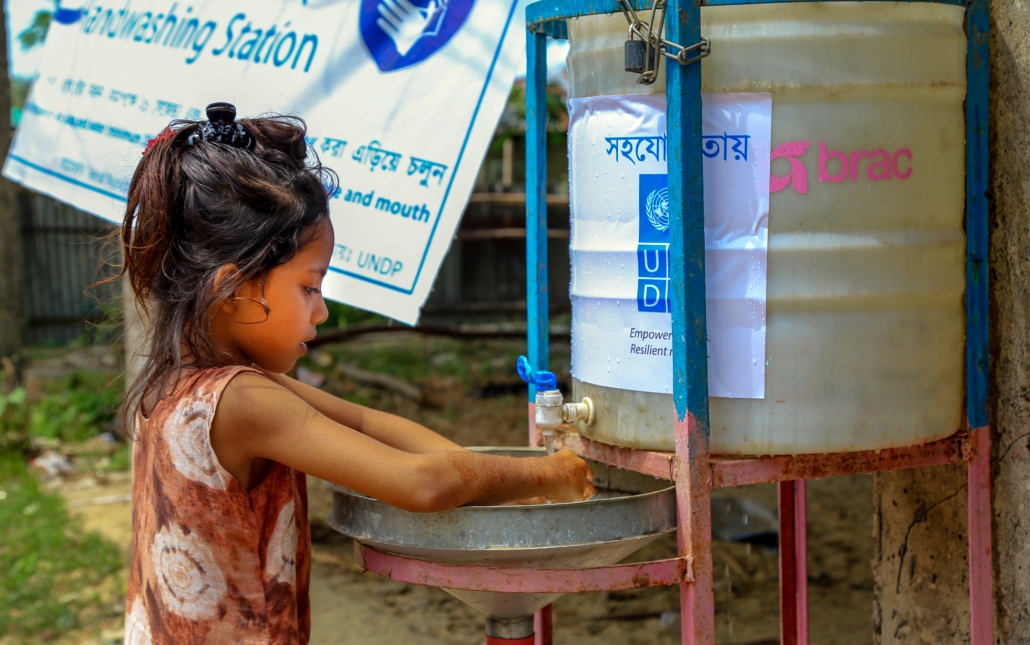
Child in a Cox’s Bazar refugee camp washes their hands in a newly installed wash station as a precaution for Covid-19. Photo © United Nations Development Programme.
In response to Covid-19, Das said newly installed handwashing stations have reached close to 10,000 people in and outside the camps, and around 137,000 soap bars have been distributed to over 21,000 people.
In an area home to over one million refugees, their efforts are hardly reaching every resident. Graveleau, however, insists the work remains impactful.
“All those activities,” he said, “have been put in place by WASH partners since March under the leadership of the WASH sector and have been contributing to the prevention and mitigation of the outbreak.”

